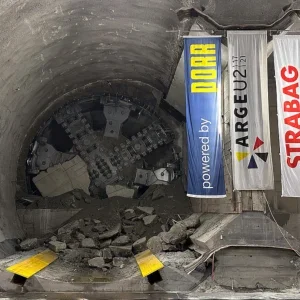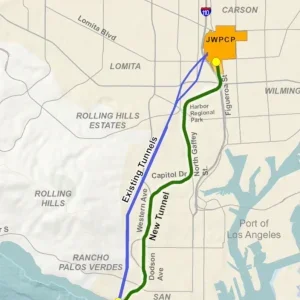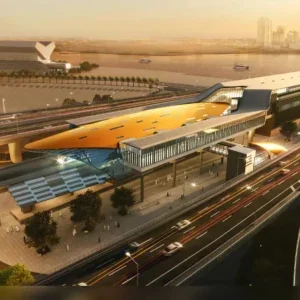The HS2 Learning Legacy initiative involves publication of lessons learnt from the high-speed rail project, including good practice and innovation. It is supported by industry partners, including the Institution of Civil Engineers (ICE).
The five winners of the 2022 Technical Paper competition are:
- Driving efficiency and sustainability in material reuse through GeoBIM (Mott MacDonald, Vinci Construction Terrassement Grands Projects and Balfour Beatty): This paper outlines how to use Building Information Management to drive efficiency and sustainability in terms of reuse of materials.
- Reducing emissions in construction through Non-Road Mobile Machinery Retrofit (HS2 Ltd, Balfour Beatty Vinci, Imperial College London and Eminox): This report addresses how to reduce emissions and keep existing machinery in use for longer and extend the utility of the embedded carbon and the financial investment in those assets.
- Designing with landscape maintenance in mind (HS2 Ltd): This paper takes a balanced and pragmatic approach to landscape design and consideration for future maintenance.
- Euston Bridge 7 Mitigation Works Design and Construction (Arup, Skanska and HS2 Ltd): This paper brings together structural design, geotechnical analysis and construction solutions that were applied to mitigate the impacts of tunnelling on a fragile bridge on the approach to Euston station.
- Streamlining Utilities Ground Movement Assessments (Arup): This paper outlines how to improve reliability and speed-up decision-making backed by data.
The winning submissions have been published on the dedicated learning legacy website https://learninglegacy.hs2.org.uk/. The ICE will also publish two books of technical papers.

The five winners are among 28 new Technical Papers that will be published following the competition covering a range of topics including design engineering & architecture; environment, digital engineering; health & safety and occupational health & well-being.
New Learning Legacy papers are published every year, including technical papers and case studies; there are now more than 150 resources on the website. HS2 is also partnering with industry to disseminate the learning through events and engagement as well as academia to share case studies with post-graduate students.
The project builds on similar initiatives at London 2012, Crossrail and Thameslink London Bridge project, but HS2 started earlier in the project life cycle, enabling learning from the early stages such as procurement, initiation, design and enabling works.
The awards were announced at an event at the ICE on November 11.
Congratulating the winners, HS2 Ltd integration director Giles Thomas said major projects like HS2 did not happen in isolation. “We build on the experience and lessons learned from previous projects and rely on the wider industry to deliver. That’s why I’d like to thank everyone who has contributed to our Learning Legacy project – and particularly our five winners for sharing their insight and experience from across the design and early stages of the project,” he said.
HS2 Ltd is working with the following industry partners to disseminate the lessons learnt:
- Association for Project Management (APM)
- British Occupational Hygiene Society (BOHS)
- Chartered Institute of Building (CIOB)
- Institution of Civil Engineers (ICE)
- Institute of Occupational Medicine (IOM)
- Institution of Engineering and Technology (IET)
- International Council on Systems Engineering (INCOSE UK)
- Major Projects Association (MPA)
- Permanent Way Institute (PWI)
- Rail Industry Association (RIA)
- Royal Institute of British Architecture (RIBA)
- Society of Occupational Medicine (SOM)
- Supply Chain Sustainability School







